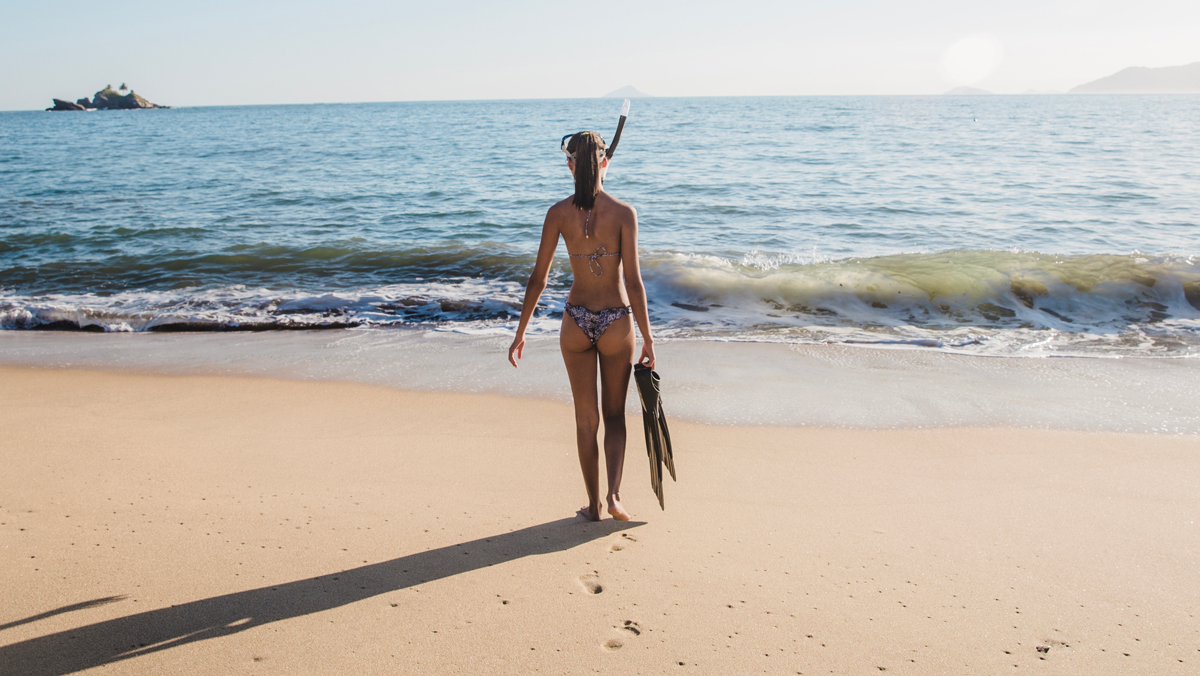Swimming in the ocean is notably different from in a pool, or even a lake. While it’s more exhilarating to see beautiful marine life and experience the gradient of blues as far as the eye can see, it’s also oftentimes come at a risky price. Being an inexperienced swimmer may cost you your life – which is why it’s vital to prepare some handy tips and tricks before starting your ocean adventure.
Tip #1: Forecast A Few Days Prior
Before setting off on your adventure in the ocean, it’s always advisable to research the forecast of not just the weather on the day, but check to see if there’s been any heavy rainfall, a couple of days prior. This will just help to prepare you for your day out, you’d not want to be caught in a storm when in the ocean. That might make things a bit more challenging.
Remember, take into account important cycles of thunderstorms, or even the wind direction for a couple of days prior. Keep in mind the fog level, which affects your visibility – have a handy checklist of things to look out for. Check to see if any pattern or notable ongoing phenomena is happening just so you can have peace of mind before setting off.
Tip #2: Know the Body of Water You’re Swimming In
Knowledge is power. Especially when it holds the key to your survival.
Out in the open waters of seas and oceans, it’s extremely vital to understand and be aware of where you’re about the swim in. The list of things you need to be aware of is endless – from the marine life that resides in the particular body of water, waves, whether surfers are abundant in the area, whether the water is known to be choppy or even challenges other surfers and swimmers face. It’s always best you speak to a regular swimmer or surfer who’s known and understand the landscape of where you’re about to swim in – just to understand what particular obstacles or tips they’re able to share.
Tip #3: Sunscreen, Sunscreen and More Sunscreen!
This is a bit of a vanity plug – but still important nonetheless.

When your body is exposed to the blazing UV rays, it’s extremely easy to get sunburned. We’re not talking about cute tanning lines (cut short a trip to the tanning salon!) – we’re talking about getting roasted out in the open sea. It hurts, a lot.
Before stepping to the beach, be sure to apply a generous amount (more is better when it comes to sunscreens!), and always go for a high SPF coverage for a waterproof sunscreen. Protect your skin from the harmful rays, just by lathering before a dip in the ocean!
Tip #4: Go Early and Let Someone Know Your Whereabouts
This applies to all those swimmers out there who love going to secluded sites or hidden gems. Going for a swim early lets you explore the water safer and longer as compared to going in for a later swim, which doesn’t allow you much sun-time to stay out.
Text a close friend, or family member where you’re going and in best cases, time your swims so you’re consistent in your rounds out. It’s always good to have a set duration when you’re out in the elements, which then translates into a routine and less of an “unexpected session”.
Tip #5: Practice, Practice and More Practice!
When you start to swim in the open water, it’ll be pretty challenging and tough. Cornering buoys, riding the waves, reading the wind direction and keeping your strokes light and clear is all part and parcel of sea swimming. Just like any other hobby or activity, it takes a great deal of practice to be an excellent swimmer.
Beyond watching your diet and exercise regime to constantly keep fit, you require a good sense of mental health to withstand facing the challenges you might encounter in the open water. A handy tip when things get too difficult, when swimming or otherwise really, is always to keep calm and believe in yourself, your mind is powerful when you harness the energy to a productive solution. Only when you trust in yourself, can it work.
Tip #6: Wrap Up the Day with A Post-Swim Bath
A study conducted by Marisa Nielsen and her team at the University of California, Irvine, found that the normal bacteria which makes up the skin microbiome were almost undetected on ocean swimmers in California after a swimming session. The researchers also took samples after the swim – with swimmers covered in ocean bacteria, which also contains the potential pathogens in the Vibrio genus of bacteria.
Bad news, right? Ocean bugs on us, right after a swim in the ocean.
It’s still good to go for a swim in the ocean, bugs or otherwise – so long as you take a post-swim bath. The number of bacteria on the skin was lessening, studies show, however, the presence of bacteria may still need to be researched further.
Wrapping Up…
Going swimming is a fun and exhilarating activity – what’s not to love in the sea? By all means, do what you love, but always bring your mind with you everywhere you go. With these few handy tips, you can’t go wrong.


